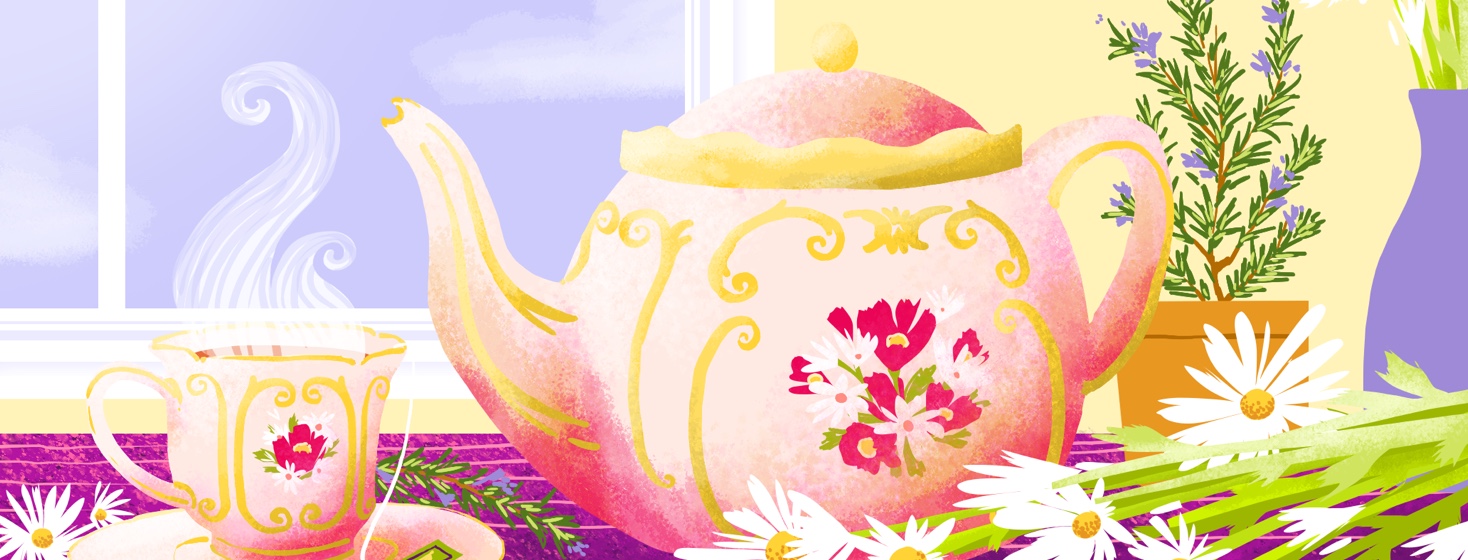Best Herbal Teas For (My) IBS
Up until my early twenties, the only type of tea I ever drank was black tea that was caffeinated. Shortly after graduating from college, my gut issues, while not as bad, were still causing me trouble. And somewhere along the way people started asking me if I ever tried any herbal teas to tame my IBS. I had not.
Herbal teas for IBS
So, I started drinking some and found that while they weren't a miracle cure, they did seem to help settle my stomach somewhat. As such, I began incorporating them into my weekly regimen – having them every other day or so or when I felt a flare coming on. Here are a few that work best for me:
Chamomile tea
Chamomile was the first tea I tried and the one people most often recommended to me when I even hinted I suffered from tummy troubles.
I didn't know what to expect and was a bit surprised by the very mild taste (in fact, I was a little put off at first because at the time I favored strong-tasting foods and drinks). I usually drank it after dinner to help my queasiness (which is often a sign or symptom of IBS). And while I found chamomile on its own doesn't dissuade an IBS flare if one is coming on, I have found that it at least doesn't make it worse and can soothe my intestinal cramps. I now mostly drink it during the mornings my GI system is feeling sensitive instead of my usual black tea or herbal coffee and I find it can stave off a flare in those instances. I also enjoy drinking it when I have reflux or my period, as it's less likely to offend my IBS compared to other alternatives.
Ginger tea
Anyone who suffers from extreme nausea fairly often – as I have – probably has at one time or another had someone recommend ginger to them.
Both my mother and grandmother had horrible morning sickness symptoms during their pregnancies (actually they both seemed to suffer from what we now know to be Hyperemesis gravidarum -- or HG -- which is characterized by severe vomiting during pregnancy) and both told me ginger was one of the few things that helped them a little. At first, I was skeptical, because I remember drinking ginger ale as a kid didn't help me much when I had the stomach flu, nor did it help my IBS either in college. I later realized that the ginger ale you get in a convenience store has a lot of artificial sweeteners and fillers that can aggravate IBS. I started instead trying pure ginger tea and drinking it from time to time.
I have found when I have very extreme nausea that it does help me better than anything else – more than chamomile. And it also seems to have some intestinal benefits as well. However, I have noticed drinking too much can instigate reflux and also overstimulate me (keep me awake) if it's late at night. Ginger also acts as an emmenagogue – meaning it can help bring on your period if it's close and it can have impacts on hormonal shifts. So, I try not to drink it too often for that reason.
Rosemary tea
Finally, I find rosemary tea also helpful for my IBS in that is an anti-inflammatory and seems to relieve intestinal and menstrual cramps. I usually use fresh dried rosemary and put it in a strainer to make the tea. I don't do it often but I find it helps me when I do.
As an addendum, I just wanted to mention I opt for organic varieties of all of these teas. Some people have asked me if I have tried peppermint tea, which is also supposed to be helpful for IBS. I have and while it does have some benefits for my IBS, I found it bothered my GERD too much, so I avoid it.
How about you? Are there some teas that help your IBS? If so, which ones? Please answer in the comment section below!

Join the conversation